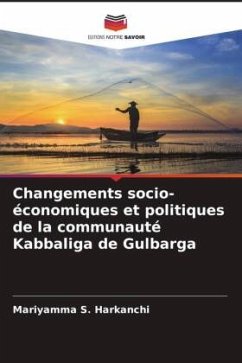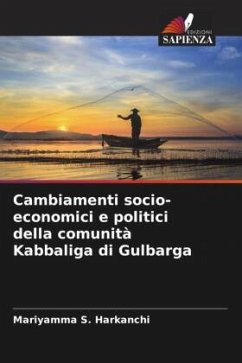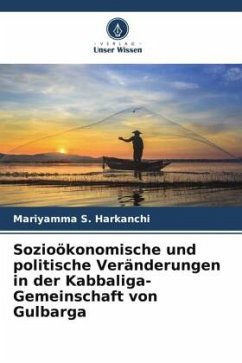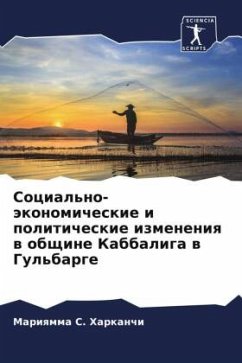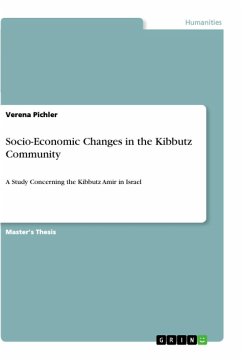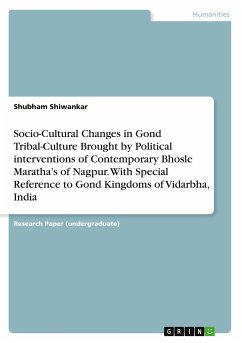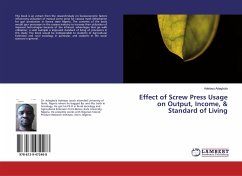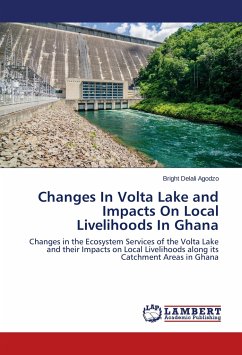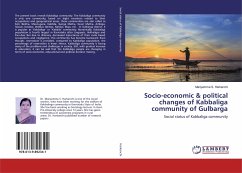
Socio-economic & political changes of Kabbaliga community of Gulbarga
Social status of Kabbaliga community
Versandkostenfrei!
Versandfertig in 1-2 Wochen
47,99 €
inkl. MwSt.

PAYBACK Punkte
24 °P sammeln!
The present book reveals Kabbaliga community. The Kabbaliga community is only one community, based on slight variations related to their occupations and geographical areas, these communities are also called as Koli, Bestha, Meenugara, Kabbila, Ganga Matha, Gouri Matha, Ambiga, Talavar, Kolakar, Walikar, Barikar, Natikar, Boya, etc. In Gulbarga district, it is popular as 'Kabbaliga' or 'Kabbila' community. Numerically, Kabbaliga population is fourth largest in Karnataka after Lingayats, Vokkaligas and Kurubas. But due to illiteracy, decreased importance of their caste based occupations and negl...
The present book reveals Kabbaliga community. The Kabbaliga community is only one community, based on slight variations related to their occupations and geographical areas, these communities are also called as Koli, Bestha, Meenugara, Kabbila, Ganga Matha, Gouri Matha, Ambiga, Talavar, Kolakar, Walikar, Barikar, Natikar, Boya, etc. In Gulbarga district, it is popular as 'Kabbaliga' or 'Kabbila' community. Numerically, Kabbaliga population is fourth largest in Karnataka after Lingayats, Vokkaligas and Kurubas. But due to illiteracy, decreased importance of their caste based occupations and negligence, this community has become backward. Even though, reservation is provided, compared to Kabbaliga population, the percentage of reservation is lesser. Hence, Kabbaliga community is facing many of the problems and challenges in society. Still, with gradual increase in education, it can be said that the Kabbaliga people are changing in terms of socio-economic, educational and political decision making.



